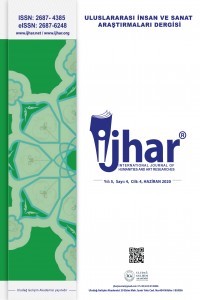
Uluslararası İnsan ve Sanat Araştırmaları Dergisi
Yazarlar: Hakki ŞİMŞEK, Tolga KARA
Konular:Beşeri Bilimler, Ortak Disiplinler
Anahtar Kelimeler:Morality,Education,Moral Education,Universal Moral Values
Özet: The concept of moral values has been a dynamic issue that has been questioned throughout human history and on which discussions continue. The moral values that are desired to be brought to people through formal or non-formal education are often questioned due to the moral problems experienced in social life. It is seen that moral criteria have started to diversify with the change in the social structure over time, and as a result, their perspectives on moral education have changed. This situation made difficult to draw a theoretical framework in moral education. Especially in recent years, the issue of what universal moral values are and how they should be brought to the individual has been one of the issues that educational institutions have worked on. The aim of this study is to determine to what extent secondary school students have universal moral values, by considering gender and class variables in terms of cognitive, affective and behavioral aspects and define their present situation. Thus, descriptive model which is one of the quantitive research method is used. The study was applied to a total of 562 students in five public secondary schools affiliated to the Ministry of National Education in Gölcük, Kocaeli, using the Universal Moral Values Scale. As a result of the study, it was determined that there was a significant difference in the sum of universal moral value scores in favor of female students and 5th grades. Within the scope of the study, it was determined that as the grade level of middle school students increased in terms of cognitive, affective and behavioral level at the grades of 5, 6, 7 and 8, moral value scores decreased.